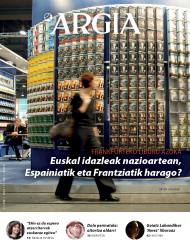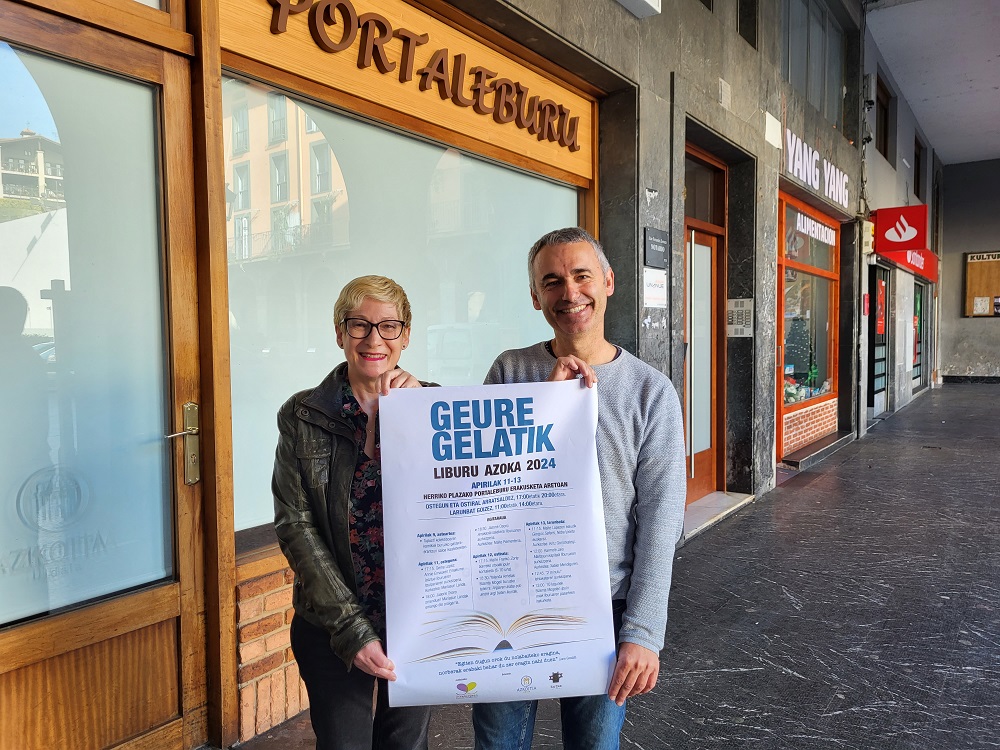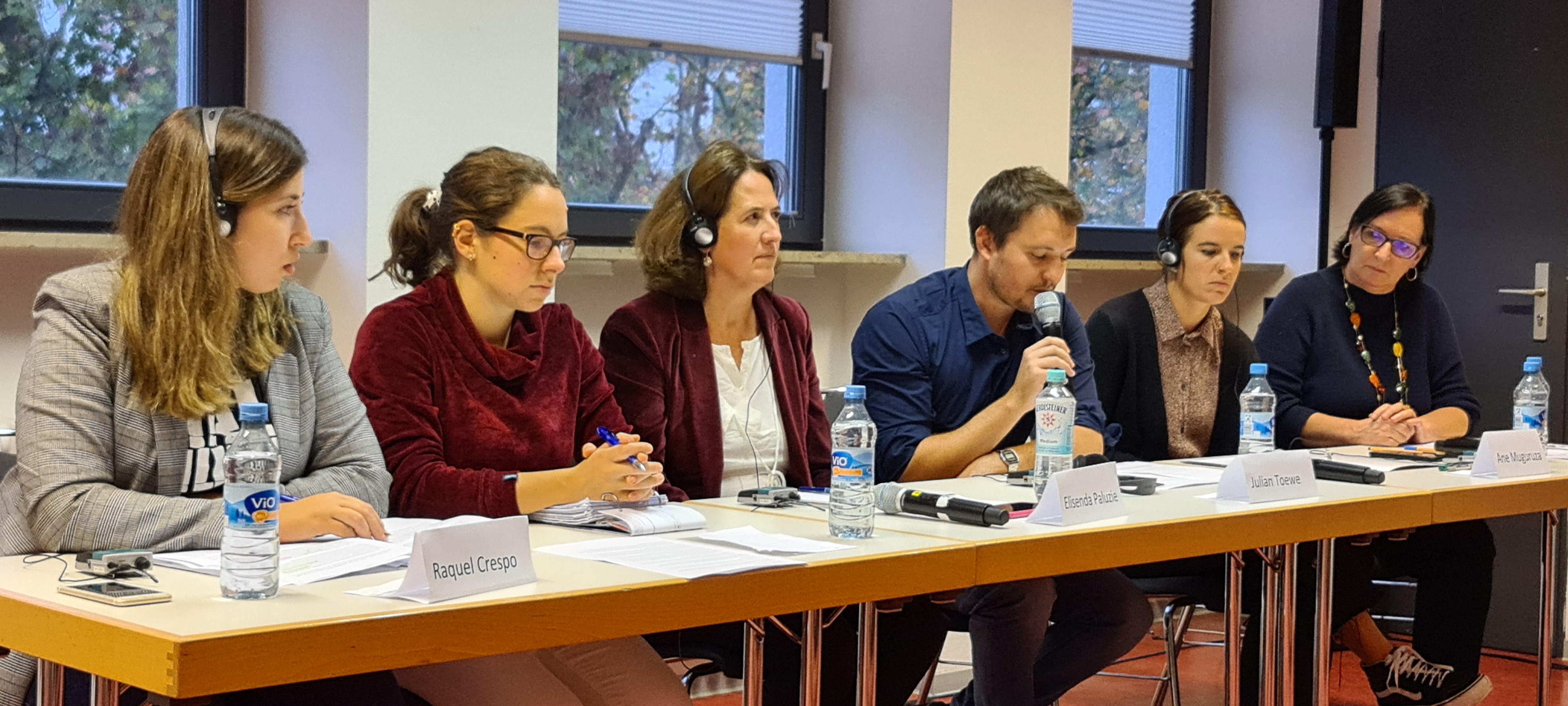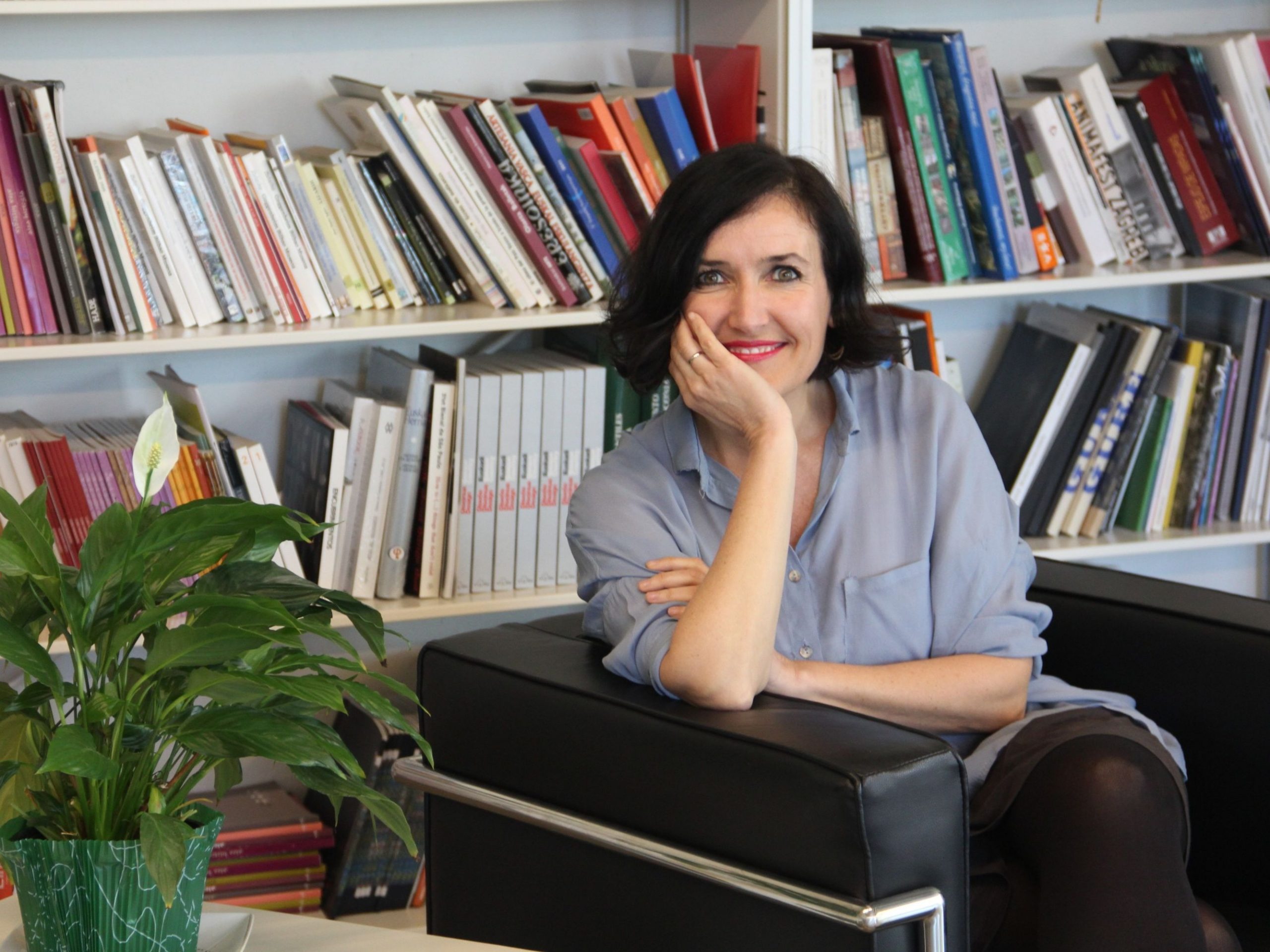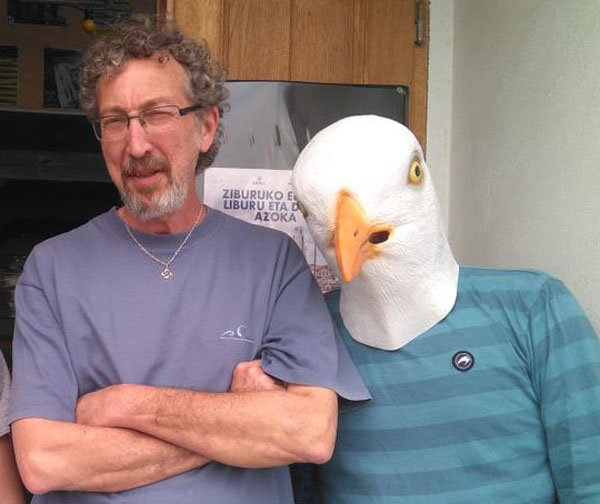A whole world before Basque books
- Between 19 and 23 October, the largest book fair in Europe attracted the attention of thousands of visitors, editors and editors from all over the world, as well as the Basques who attended the event. Among the continental pavilions, writers, illustrators and editors of Asturias, Galicia, Catalonia and Euskal Herria have found their place in a special edition in which Spain has been the guest country. During these days, several citizens have organized an alternative program Beyond Spain to make a political counterpoint.

The book fair is located in two or three tram stations for coffee at Frankfurt Central Train Station. You read the accreditation with your mobile as if you're entering a concert. It rains out. It's hot inside. We cross a long pavilion, a plaza, called Agora, and we enter another one. We still don't distinguish between places and numbers. Number 3 is said to be German. In the first pavilion are the conferences and events in Spain, in the 4.1 books in Basque, among many others. But eventually we'll learn that. The first thing we have seen is entering the book fair and the floors, see, Jakoba Errekondo has also come to Frankfurt! But it's not the ARGIA post. But the green paper is also successful. From there everything is stand, book cover, editorial and editorial. Countries and books. Of different sizes and sizes. Here and there.
This German city is the largest book fair in Europe. And we've also been drawn to that. What to see and, above all, with the intention of learning something. The measure is observable and frightening. Half a dozen in Durango. The day ticket costs 25 euros and 70 passes for the whole fair. Professional days have been Wednesday to Friday and more people are expected on Saturday and Sunday. Much more, according to those who used to come here.
We enter a pavilion, which has cost us and weary, where we have seen a wooden building of a certain entity. “Basque.Books”, which contains books of the editorials of Euskal Herria, who know us. Next door, those from Galicia, Andalusia, Asturias. Opposite it is a larger area of Catalonia. And advancing through Portugal, Brazil, Lithuania, Guinea, Angola, Sweden, Canada, USA... and eleven other spaces, countries, great editorials and others.
Obaba in Frankfurt
There is a colloquium with Bernardo Atxaga among the events organized at the initiative of the Spanish Ministry of Culture. We have come out to hear Ana Urrestarazu from the Association of Basque Editors. Then, some Basque editors, responsible for the Instituto Vasco Etxepare, and some other author, have approached to bid Atxaga off. After your stay in Germany, you will be transferred to Mexico where you will also be responsible for several conferences. Then other presentations, more trips. You don't get tired of Asteasu. And he's had to remember how he started writing about Obaba, he's remembered the thrust of Gabriel Aresti, who had to write about the people of those who didn't know who Freud and Marx were, and he's told the passages, the stories that happened and the stories that he has to write about. But no novels, because it would take another five years.
We go back to the eagle of Basque books and we dive into hallways in search of our book. See works by unknown writers. Like we dive into a giant travel agency. The world can feel small here, but we are constantly present at the international level.
Basque editors
Like us, the publisher of the editorial Uxue Razkin Erein has its first edition at this fair. “I hoped to be a great showcase for international literature and that’s what I’ve found,” he says. “I think it’s a window for information: what people are reading, what publishers have in their catalogues. In short, thanks to this fair I have known books from Scandinavia, for example, what they are publishing, how they do the books...”. For the first time, Erein’s new editor has not entered the deals. It will be able to do so from now on. But it is important that Basque publishers should be in Frankfurt. “It is a way of saying that we are also on the map, that is, claiming that we are also within that system.”
Razkin is pleased to have come: “For me it has been a very enriching and beautiful experience. Not only because I've seen books, I really like that, I want fairs, but not just that; to be in touch with literary agents, editors of publishers ... It has allowed me to build that literary network and that is always enriching, because you learn a lot.”
With the help of translators, the work of editors and the help of promoters will know the world
Ana Urrestarazu of the Association of Basque Editors has been attending the fair for years. “As a partnership, our mission is to facilitate the transition to editors, here come the editors to do business, to buy and sell rights from other publishers.” Came for the first time 25 years ago: “When we started to come, ours was a very small stand, not a design stand, and there were few publishers coming,” said the head of the Association of Editors. And over the years, you've seen how many rights have been purchased and sold at this meeting point. “It gives you special satisfaction when purchased books are published here.” Meetings are held at the post, they are known. During these days, Slovenia, Valencia, Frisia and many other literary agents are shaping the international project Lit up. Urrestarazu has highlighted that this year there are ten Basque publishers in Frankfurt: Erein, Susa, Txalaparta, Elkar, Pamiela, Igela, UPV, Astiberri, Sua and Etxepare.
We have also greeted Miren Agur Meabe, talked about poetry and music with the Galician poet Yolanda Castaño, and also Andalusian Elena Mede. They've gone through the language, the music, the dictionary of poetry and ended the session with two poems, each in their original language. In the end, applause is universal. Patxi Zubizarreta and Jokin Mitxelena have drawn a story they have offered to the attendees in color and sketch. Katixa Agirre has welcomed motherhood and creation along with other authors. Like us, more than 90,000 people have attended the fair: editors, agents, editors or exhibitors related to the book industry. 87,000 more visitors throughout the week. 4,000 people working in jobs. The Basque book has a world ahead, the Basque letters. With the help of the writers, with the help of translators, editors and promoters, the Basque words will know the world.
What is the role of Etxepare at a fair like Frankfurt?
Our role in general is not in the market sphere. There are professionals, in this case editors, authors, translators… a whole system. The fair in Frankfurt is a fair for the sale and purchase of rights, not a fair for the... [+]







